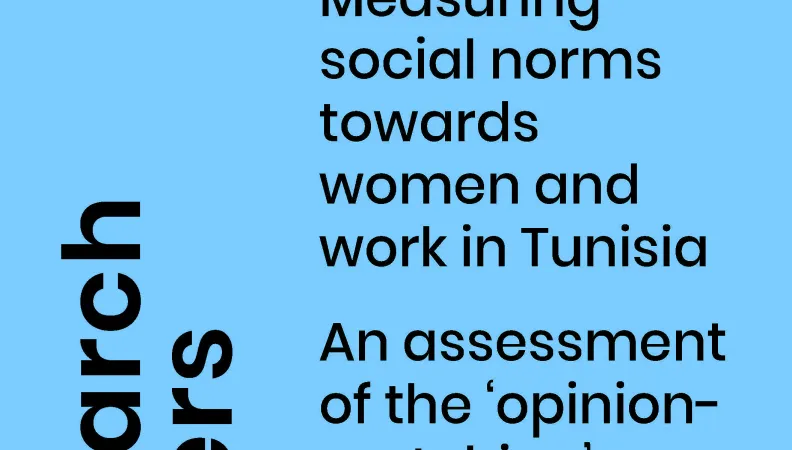Share the page
Measuring social norms towards women and work in Tunisia. An assessment of the ‘opinion-matching’ method
Published on

The presence of patriarchal social norms and traditional gender roles is a potential explanation for persistent inequalities in labor market opportunities for women in the MENA region. We investigate this nexus with evidence from a survey experiment conducted among youth residing in disadvantaged neighborhoods across Tunisia – a context where young women face particularly strong barriers to joining the labor force. More precisely, we apply and assess the ‘opinion-matching’ method that relies on second-order beliefs to proxy for social norms. We test whether first-order beliefs are subject to social desirability bias and we investigate the effect of incentivizing second-order beliefs. We find that personal beliefs may suffer from social desirability bias or experimenter demand effects when elicited directly as opposed to indirectly through a list experiment. Moreover, we do find small, but significant differences in stated perceived social norms when prompted with financial incentives. Our findings have implications for the conclusion of whether pluralistic ignorance is an issue; we conclude that young Tunisians have a quite accurate picture of social norms held by their peers towards women working outside their home. Social norms, besides structural barriers, should be made more progressive for women to work outside the home.
Useful Information
-
Authors
-
Micheline Goedhuys, Clotilde Mahé, Eleonora Nillesen, Ann-Kristin Reitmann
-
Coordinators
-
Cecilia Poggi, Claire Zanuso
-
Edition
-
304
-
Page number
-
37
-
ISSN
-
2492 - 2846
